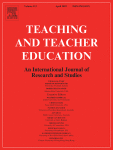Eines per a un currículum de ciutat 360
Eines per a un currículum de ciutat 360 Competències transversals per connectar i millorar les oportunitats educatives “S’adreça a totes les persones i agents compromesos amb la millora dels aprenentatges en els seus territoris i en la construcció d’ecosistemes educatius 360. Ara bé, les estratègies i les accions per desenvolupar un Currículum de ciutat han de dur-se a terme sempre de manera col·lectiva i comunitària. (…) Exercir una ciutadania plena requereix no només tenir cobertes les necessitats bàsiques, sinó poder participar de manera conscient i autònoma en la vida de la comunitat: defensar els drets d’un mateix, navegar per les institucions, [...]

